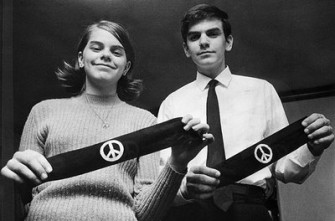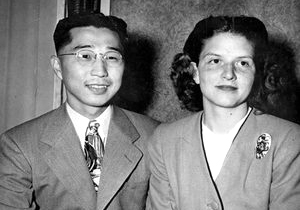to meet the challenges of our times

You have a right to live. You have a right to be. You have these rights regardless of money, health, social status, or class. You have these rights, man, woman, or child. These rights can never be taken away from you, they can only be infringed. When someone violates your rights, remember, it is not your fault.,I believe that to meet the challenges of our times, human beings will have to develop a greater sense of universal responsibility. Each of us must learn to work not just for one self, one's own family or one's nation, but for the benefit of all humankind. Universal responsibility is the key to human survival. It is the best foundation for world peace
TO PROTECT OUR INDEPENDENCE, WE TAKE NO GOVERNMENT FUNDS
INTRODUCTION TO VETERANS PROJECT & The Family Assistants Campaign.
Sunday, May 13, 2018
Monday, February 26, 2018
kids
Then and Now
kids
OK, so why is the country falling apart? Specifically, why are kids blowing each other away? America has become a source of wonder the world over with its Columbines and hundreds and hundreds of dead in Chicago and Baltimore and its burning cities and riots. Other advanced countries don’t do these things.
America didn’t either until recently. Why now? Something has changed, or some things. What? People under forty have never seen the country when it was sane. Let me point out things that have changed, at risk of sounding like a boilerplate cadger: “By cracky, wen I was a boy, we could amuse ourselves for hours with just a piece of string and a couple of sticks.” Let’s compare today with the Fifties and Sixties. I mean this as sociology, not nostalgisizing.
I think that a combination of social changes have led to tremendous stress on today’s kids that my generation did not suffer. To wit:
In my rural Virginia school, there was no racial tension. We were all white: teachers, students, parents.
The black kids went to their own school, Ralph Bunche. We had virtually no contact with each other. There was no hostility, just no contact. The academic gap didn’t exist in the absence of contact. Integration would prove cruel when it came. and the black kid s sank to the bottom. The causes can be argued, but the fact cannot.
There was no black crime to speak of or, as far as I knew any black crime. Certainly blacks did not shoot each other, or anybody. Neither did we. The reasons I suspect were similar.
Divorce was extremely rare, so we all had parents. Whether it is better that unhappy couples stay together or that they divorce can be argued, but they then did stay together. It made a large difference in outcomes if one accepts the statistics. The welfare programs of the Great Society had not yet destroyed the black family, which I speculate accounted in part for low crime.
Drugs did not exist. These appeared only with the Sixties. A few of us had heard of marijuana. I read a clandestine copy of The Naked Lunch. That was it. We drank a lot of beer.
In the entire school I remember only one, moderately fat kid. Why? Because, I will guess, we were very physically active. The school had PE classes, football and basketball teams, and so on. In summer kids aboard Dahlgren spent their days at the base swimming pool or swimming in Machodoc “Creek”{{it was perhaps three-quarters of a mile wide–bicycling, canoeing- playing tennis. The country kids chopped cord wood, lifted hay. There was ice skating for hours in winter. Gloria, my best girl, got up at four a.m. to help her father pull crab pots on the Potomac, Though feminine, she probably could have thrown a Volkswagen over a four-store building. Again, I offer this not as nostalgia but as biological fact with effects.
Physical fitness has. I suspect psychological consequences. For example, ADHD did not exist. Boys are competitive, physical animals full of wild energy and need–need–to work it off. Boredom and enforced inactivity are awful for them. Two or three hours daily of fast-break pick-up basketball did this. If you force boys to sit rigidly in school, with no recess or only physically limited play, they will be miserable. If you then force them to take Ritalin, an approximate amphetamine, they will be miserable with modified brain chemistry. I don’t think this is a good idea.
Sex and, I think, its psychological consequences were different then. We were aware of sex. I am not sure we were aware of anything else. But the culture was such that, first, young girls, middle school, say, were sexually (very) off limits. When barely pubescent girls are taken advantage of by boys of seventeen or of thirty-five, the emotional effects are devastating. By contrast, boys hoped desperately to be taken advantage of.
The de facto social theory was that girls should remain virgins until married. I think few really believed this, and certainly many girls did not. However the necessity of pretending, plus the fear of pregnancy in those pre-pill days, allowed girls to say “no.” if they chose. The Pill, backed up by abortion, would make girls into commodities. If Sally said no, Mary wouldn’t, and boys, churning jhrmone wads, would go with Mary. Thus girls lost control of the sexual economy and the respect that went with it. More stress.
Anorexia and bulimia did not exist. We didn’t know the words. Both look to me like a reaction to stress.
Uncertainty is a formidable source of stress. We had little uncertainty as to our futures in the sense that the young do today. We assumed, correctly, that jobs would be available for us. For kids who were not going on in school, there were jobs at Dahlgren, the local naval base, as secretaries or guards or maintenance personnel, federal jobs with benefits. More remotely, Detroit was paying what seemed to us astronomical wages. Those of us in the college track, which meant those whose parents were grads and those who had high SATs, knew we could work in whatever field we had chosen. Starbucks and living in our parents’ basements never crossed our minds.
Social mobility existed, and girls had not yet been taught they were victims. Of my graduating class of sixty, two girls became physicists and my buddy Franklin, of non-college family an electronics engineer. Sherry a year behind me, a nuclear biologist. All, I think, of non-college families. There must have been others.
Extremely important, I think, was that the school was apolitical. We didn’t know that it was. School was where you learned algebra and geography, or at least learned at them. The teachers, both men and women, assumed this. The white kids were not endlessly told that they were reprehensible and the cause of the world’s problems. The boys were not told that masculinity was toxic. Hysteria over imaginary rape was well in the future. Little boys were not dragged from school by the police for drawing a soldier with a rifle. The idea of having police in a school would seem insane when it first appeared.
More speculatively: My wife Violeta recently commented that the young today seem about ten years younger than their age. There may be something go this. At least in the media and academic worlds, people in their mid-thirties remind me of the young of the Sixties, displaying what appear to be the same hormonal rebellion and sanctimony. It has also seeped into high school. There is the same anger, the same search for grievance, the same adolescent posturing.
I think feminism plays a large part in the collapse of society in general and specifically in pushing boys over the edge. In my school years boys were allowed to be boys. Neither sex was denigrated. Doing so would have occurred to nobody. Then came a prejudice against boys, powerful today
All of this affected society in its entirety, but especially white boys. They are constantly told that being white is shameful, that any masculine interest is pathological, that they are rapists in waiting. They are subjected to torturous boredom and inactivity, and drugged when they respond poorly. They go to schools that do not like them and that stack the deck against them. Many are fatherless. All have access to psychoactive drugs.
Add it up.
Fred Reed
Pro Deo et Constitutione –
Libertas aut Mors Semper Vigilans Fortis
Paratus et Fidelis
Joseph F Barber
Tuesday, February 20, 2018
Homeless Veterans More Likely To Die On Streets Than Other Homeless People, Study Says
Morning all you beautiful people we have been running and working to assist so many these days iot has been awhile since I was in country or on active duty yet in this time I have seen many of our country men and women who are down or have fallen down and may be all they are seeking is what our government has failed in their promise to pour fellow citizens they have been marginalized and set aside ands nothings or no good I have watch some 26 over the last few years take their own lives some I had grown very found of our urban survival packs give some comfort and lets them know that there are people left in this world that still care ,
one thing I have come to see very clearly is Sometimes people just misunderstand, sometimes they cannot understand or choose not to see things from a different point of view. When they judge you, in reality they are judging themselves, and that can be a sad moment when you realize as much as you love someone, as deep as the caring goes, there will never be a true understanding. Some people are just very different from each other, and cannot seem to meet halfway. It is in those times the hard choices come, do I stifle myself, my voice, my being? All for the approval of someone who may never approve, no matter what? Or do I keep being me, expressing my view of the Universe, even if that other person chooses to walk away forever? Sadly, too many say no, and give in, give up and conform, in the process they die a little more inside each day. I choose a different path, a harder, rockier, steeper path it may be, but the view, oh the fabulous wonder of just being able to BE, no matter what. I choose this, I choose an immortal life. And I wish you well on your journey too. Maybe our paths will cross again someday, things will be different, maybe. But I refuse to give up who, all that makes me, just to please you. I hope you will understand, but understand that you probably will not.
The reason it hurts so much to separate is because our souls are connected. Maybe they always have been and will be. Maybe we've lived a thousand lives before this one and in each of them we've found each other. And maybe each time, we've been forced apart for the same reasons. That means that this goodbye is both a goodbye for the past ten thousand years and a prelude to what will come.”
Avoiding something doesn't always mean that you hate it. It could also mean that you want it, but you just know it isn't right. Sometimes the best way to avoid a situation or a relationship from growing is to just ignore it. Though sometimes we may have a connection to a person or thing, it isn't always right for us to go after it. Only you will know when situations are best to avoid in your life, and situations as such are sometimes very difficult to ignore because of your attraction to it. Utilizing self-control will always be a part of life that everyone will have to learn for him or herself. Just remember that avoiding something doesn't always mean that you could hate it, but it can also mean you want it, but know that it isn't right for you to have. Do what's right, do unto others as you would do to yourself, and you will live your life as free as you possibly can.
Homeless Veterans More Likely To Die On Streets Than Other Homeless People, Study Says
Homeless veterans are more likely to die on the streets than non-veterans, a new study revealed.
Those who return from serving, to leading the homeless life are 11 percentage points more likely to develop life-threatening diseases than non-veteran homeless people, the 100,000 Homes Campaign concluded in a study published Tuesday.The movement, which works to place homeless Americans, surveyed 23,000 homeless people across the country. It found that homeless veterans are typically older than non-veterans and tend to remain homeless for longer periods of time.
"Men and women who risked their lives defending America may be far more likely to die on its streets," the authors concluded.
The authors noted that 21.3 percent of homeless veterans reported an age over 60, compared with 9.4 percent of the non-veteran homeless population. Though this factor doesn't fully account for the disparity in the length of time that veterans remain homeless, or their susceptibility to sickness, older veterans claim that their age often impedes their ability to get their lives back on track.
T.J. Manning, who served in Vietnam, has been living in a Texas homeless shelter for a year and says that President Obama's plan to help employ veterans doesn't cater to servicemen from Manning’s era.
Though Obama's bill aims to help find jobs for the country's 900,000 unemployed veterans, Manning told woai.com that such initiatives are often geared to help those returning from Iraq and Afghanistan.
"When you say a bill for veterans you are intending to seem very inclusive," Manning told the news outlet.
As Obama works to incentivize companies to employ veterans, he's also in the midst of executing his and the VA's plan to end homelessness by 2014. Back in 2009, Secretary of Veterans Affairs Eric K. Shinseki announced the $3.2 billion collaboration to end veteran homelessness. The initiative is both preventative and ameliorative, it aims to keep veterans from ever losing their homes and to find residences for those who are living on the streets.
"Those who have served this nation as veterans should never find themselves on the streets, living without care and without hope,” Shinseki said.
Please provide whatever you can- $1, $5, $10, $20, $50, $100- To Use your debit/credit card or check click here:
From Your Hand to the Homeless Veterans and citizens and children
We need your tax-deductible donation like never before. Please make it today.
The Family Assistants Campaign.
No matter what the VA may do or say there is only 2 percent of any funding for Female veterans I will do all I can to support our women in this cause
Many will tell you That ,The lord only helps those who help themselves !!! and will not help those who may have issues beyond anyone's control and yet many of those who may be asking for help have work their whole lives and yet life has a funny sense of humor, I heard and then what of the others those that have lost their way and can not seem to find their way back to life or what they once had ,again life has a funny sense of humor yet cruel, for me to hear another say such things as the lord only helps those who do not help themselves ,“There is some kind of a sweet innocence in being human- in not having to be just happy or just sad- in the nature of being able to be both broken and whole, at the same time.” ,and If I am correct we were created by god and we are human !! , I do not think people truly understand the meaning of the words they read or do they have an understanding or and awakening to the true meaning of love and god!!! , I think the best way to put this is simply this , for god so loved the world he gave his only son , tell me my friend what would you not do for your son !!! and that is exactly what god expects of us and each and for each other and our world. Know this brother we are all in this together no matter race color or creed or the issues we may have or the idealism that hold us from awakening to the truth and one another ,“But if I'm it, the last of my kind, the last page of human history, like hell I'm going to let the story end this way. I may be the last one, but I am the one still standing. I am the one turning to face the faceless hunter in the woods on an abandoned highway. I am the one not running but facing. Because if I am the last one, then I am humanity. And if this is humanity's last war, then I am the battlefield.” Joseph F Barber
To protect my Independence I will accept no Governmental funds
From Your Hand to the Homeless
I am my brothers keeper.Homeless “survival kits.” We Create and distribute kits
Help ease their burden. Just $25 helps provide homeless survival packs
4veterans & none veterans.@
or if it is best for you and your family please Mail your Donation to
Care of Suzanne D Button Project manager,Contact Info
Phone 760-643-6134 442-251-6553
email:veteransproject@yahoo.com
WEB PAGES :https://www.facebook.com/lawfulrebelion/
https://josephfreedomoranarchy.blogspot.com/2014/07/veterans-project.html
https://www.facebook.com/donate/317402278748455/
https://youtu.be/VLBSMIzckls
Thank me for my Service
Pro Deo et Constitutione – Libertas aut Mors
Semper Vigilans Fortis Paratus et Fidelis
Joseph F Barber
Tuesday, February 13, 2018
Saturday, February 10, 2018
The power of love
If you’re lucky, you will have experienced different kinds of love in your lifetime. Love for your family, love for your significant other, love for your offspring, love for your pets, and love for the self. Each type of love is unique and different from the others.People may not always tell you how they feel about you, but they will always show you. Pay attention.
The only way love can last a lifetime is if it’s unconditional. The truth is this: love is not determined by the one being loved, but rather by the one choosing to love.
If you judge people, you have no time to love them We come to love not by finding a perfect person, but by learning to see an imperfect person perfectly
Love is like a friendship caught on fire. In the beginning a flame, very pretty, often hot and fierce, but still only light and flickering. As love grows older, our hearts mature and our love becomes as coals, deep-burning and unquenchable.
Don’t wait for a perfect person to love. Love a person and make him or her perfect with your power of love.
There is never a time or place for true love. It happens accidentally, in a heartbeat, in a single flashing, throbbing moment. The only way love can last a lifetime is if it’s unconditional. The truth is this: love is not
determined by the one being loved, but rather by the one choosing to love.
Joseph F Barber
https://youtu.be/3Fo4VPGZ9IA
Monday, February 5, 2018
The Increasing Likelihood Of Nuclear War Should Straighten Out All Our Priorities
 A Russian pilot has been killed by US-armed terrorists in Syria. The Ron Paul Institute's Daniel McAdams writes the following about this new development:
A Russian pilot has been killed by US-armed terrorists in Syria. The Ron Paul Institute's Daniel McAdams writes the following about this new development:"The scenario where a US-backed, US-supplied jihadist group in Syria uses US weapons to shoot down a Russian plane and then murders the pilot on the ground should be seen as a near-nightmare escalation, drawing the US and Russia terrifyingly closer to direct conflict."McAdams is not fearmongering; he is stating a plainly obvious fact. The Trump administration has just announced that it is restructuring its nuclear weapons policy to take a more aggressive stance toward Russia than that which was held by the previous administration. This is coming after this administration's decision to arm Ukraine against Russia, a move Obama refused to take for fear of escalating tensions with Moscow, as well as its decision to continue to occupy Syria in order to effect regime change, along with numerous other escalations. The Council on Foreign Relations, which is without exaggeration as close to the voice of the US establishment as you can possibly get, is now openly admitting that the “United States is currently in a second Cold War with Russia."
"We are in new cold war that is much more dangerous than the last cold war for various reasons. One is that the new cold war today, as we talk, includes three fronts. U.S.-Russian fronts, they're fought with hot war. That's Syria. That's the reckless NATO military build-up on Russia's western boarders, which has resulted in a situation today that ordinarily artillery, not missiles, ordinary artillery, can hit Russia's second city of Saint Petersburg. Just think about that and the instability. And the third front is Ukraine."Cohen explains how the political pressures placed on Trump by the ongoing fact-free allegation that he is a Kremlin puppet makes it far more difficult for him to negotiate on these multiple fronts agilely, thus making it much more likely that Trump will choose to advance when he should retreat, hold his ground when he should back down, and generally be locked into patterns of aggression and forward movement rather than the back-and-forth finesse required for safe cold war negotiations with a nuclear superpower.
Monday, January 1, 2018
Insisting on the Rights of Everyone
Insisting on the Rights of Everyone Everywhere
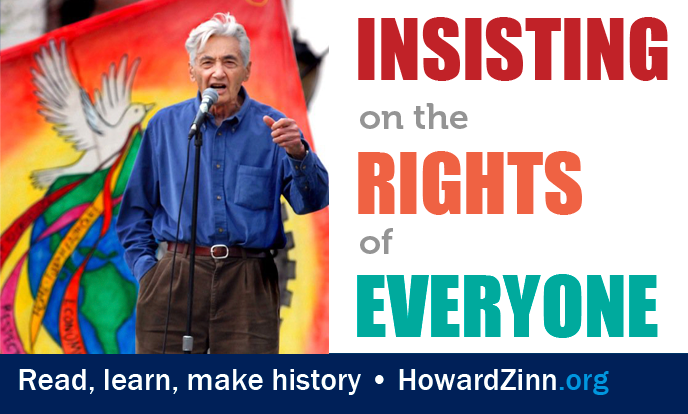 By Howard Zinn, excerpted from The Zinn Reader
By Howard Zinn, excerpted from The Zinn Reader


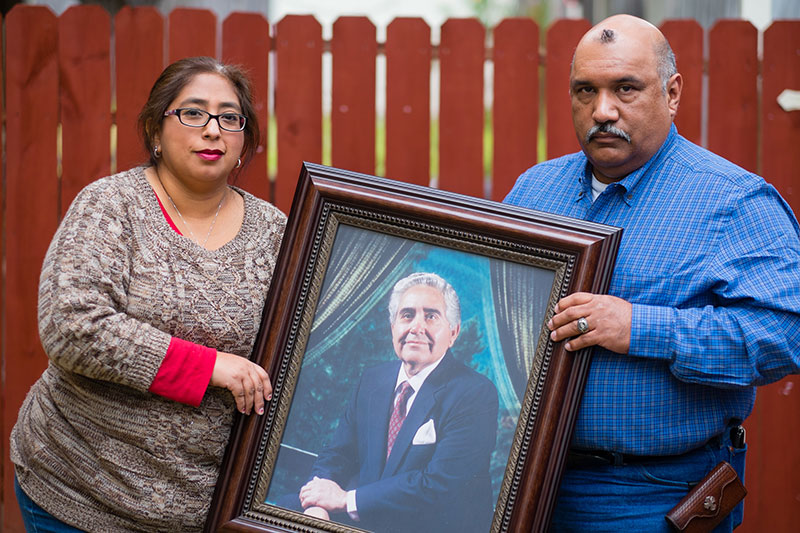
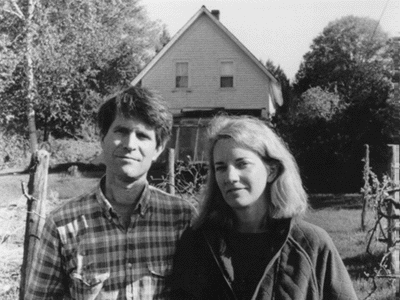
Dont onto call the cops
Don’t Call the Cops If You’re Autistic, Deaf, Mentally Ill, Disabled or Old
“Anyone who cares for someone with a developmental disability, as well as for disabled people themselves [lives] every day in fear that their behavior will be misconstrued as suspicious, intoxicated or hostile by law enforcement.”—Steve Silberman, The New York Times
“This group was more likely to wield a weapon less lethal than a firearm. Six had toy guns; 3 in 10 carried a blade, such as a knife or a machete — weapons that rarely prove deadly to police officers. According to data maintained by the FBI and other organizations, only three officers have been killed with an edged weapon in the past decade. Nearly a dozen of the mentally distraught people killed were military veterans, many of them suffering from post-traumatic stress disorder as a result of their service, according to police or family members. Another was a former California Highway Patrol officer who had been forced into retirement after enduring a severe beating during a traffic stop that left him suffering from depression and PTSD. And in 45 cases, police were called to help someone get medical treatment, or after the person had tried and failed to get treatment on his own.”
“Although new recruits typically spend nearly 60 hours learning to handle a gun, according to a recent survey by the Police Executive Research Forum, they receive only eight hours of training to de-escalate tense situations and eight hours learning strategies for handling the mentally ill. Otherwise, police are taught to employ tactics that tend to be counterproductive in such encounters, experts said. For example, most officers are trained to seize control when dealing with an armed suspect, often through stern, shouted commands. But yelling and pointing guns is ‘like pouring gasoline on a fire when you do that with the mentally ill,’ said Ron Honberg, policy director with the National Alliance on Mental Illness.”






